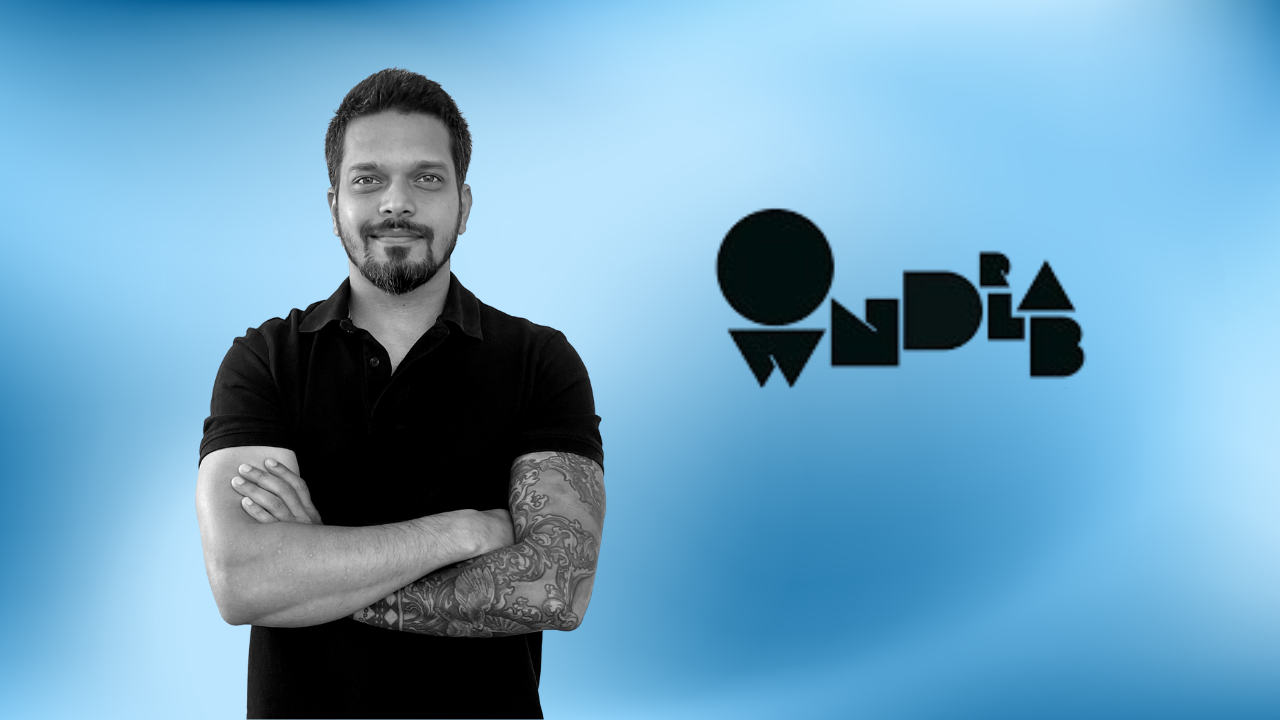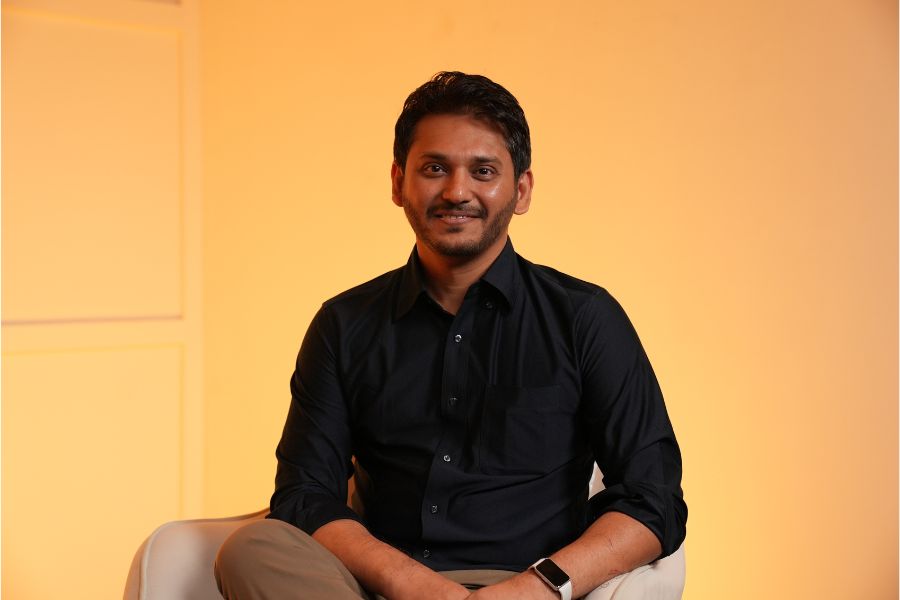With the world opening up, Susan Credle, global chair and global chief creative officer, FCB and Tina Allan, global partner, head of data science and connections, FCB, wasted no chance to be in India last week.
The agenda for their visit was to see how FCB’s three agency structure (FCB India, FCB Interface and FCB Ulka) was panning out, along with an update on the relationship with the recent acquisition of Kinnect.
The duo had been to the agency's London office and has more visits on their agenda.
Credle, who joined FCB in January 2016, admitted how she has seen the Indian operations evolve from having no creative reputation to one that can now lead the country with just a little push.
She shared, “Everybody admitted that we didn’t have a creative reputation. We were an agency with good business partners. It began with us getting Rohit (Ohri) onboard and then getting Swati (Bhattacharya) as CCO.”
Credle added that she and Ohri, both had their doubts about Bhattacharya joining the agency.
She also revealed how the first couple of months didn’t go as per plan, even after Bhattacharya joined FCB in 2016.
“We had to figure out how the culture would protect her and bring out the best in her. The mistake we make is hiring someone, and then if it doesn’t work, letting it go. We need to find out why it didn’t work,” she said.
And FCB corrected those issues by finding out that Bhattacharya wasn’t being supported by the then team.
Credle added, “She didn’t have a great strategist around. We had to build a much needed creative culture. And thank goodness, she hung in there. We surrounded her and protected her. Once she got a couple of wins, it changed. Now, you can see we’re ready.”
Now that the culture is in place, Credle acknowledged that it was time for the Indian operations to start doing the best creative work on their biggest brands.
“So far, the best creative has been for a lot of NGOs. Now, it’s time for the best work on our biggest brands. We have to also prove that it’s an economic multiplier. We want to see if the work can change the business. I wouldn’t ask the Indian office to do this if I didn’t believe it was ready. The country is more than leading. They’re doing great work and with a little more push, they’ll be leading the industry,” she added.
Credle added that when anyone in the agency gets a call from India, and if the team is excited about it, they know the work they're going to take on, will be great.
“This says a lot about the market. India knows what good is. I’ve been impressed that they’re hard on the work. Some things are good, but can be better,” she said.
Uniting math and the magic
Allan labelled the duo's visit together as merging ‘math and magic’ and revealed that the visit to India has been emotional on many counts.
“Travelling together and talking about data and creativity together in a group makes sense. It’s wonderful to see people again. I joined during the pandemic and hardly met anyone. The visit to India has been a happy emotional one,” she said.
Adding to it, Credle stated, “We have a lot of words on paper. But when you hear two people talk those words and see the work, it is another feeling. I was with the creative team today and we were talking about an ad. The ad is just a small part of the conversation, and we discussed how one needs to have an understanding of where the brand needs to be taken. There’s a way of doing this and it’s not a factor of luck. That’s where data comes in, helping you get lucky more often.”
New roles
Credle was elevated recently to be handed the global chair role in addition to the global chief creative officer role she held.
By elevating the global chief creative officer as the global chair, Credle stated it’s a signal of intent from the group that it values creativity.
“Creativity is the business and the business is creativity, at least in this business. We make our decisions through the lens of creativity and not a balance sheet,” she said.
Having said that, Credle added that revenue and margins remain of the utmost importance.
“When the business is creative, you have to figure out whether you’re being paid the right way,” she added while stating that getting paid fairly for creativity is a fairly big challenge.
“Because the creative is the chair, that drumbeat (of getting paid fairly for creativity) gets louder. We can’t continue to improve creativity if you’re not getting paid for it."
However, she had a suggestion to change the way agencies are paid.
“I remember asking my colleagues why we weren’t getting paid on the modern stock response or if the client does well. We were working on Mars and we were growing the business like crazy, but he said that if somebody at Mars buys cocoa futures and gets it wrong, it’s not our fault and we lose business."
“Now, with data, we have a better way to deliver results. If you want to get 5,00,000 email IDs of consumers, we can come up with a creative way to make people want to share it with the brand. We have a campaign coming up for a toilet paper brand and can’t reveal the idea yet, but 75% of England is going to end up sharing their email IDs with the client,” added Credle.
And that’s where the revenue can come from, according to her.
“For instance, we can say we will deliver the first 5,00,000 IDs on the cost of the creative idea, but for anything over that, we need a dollar per mail ID, up to a cap of US$ two million,” she said.
And this thought has come from learning. Credle was part of the team that was working on a Burger King campaign, for which the main objective was app downloads. Till the agency was tasked with the work, Burger King was paying about US$ 7 per download.
“We weren’t smart on how we set up the contract from a payment point-of-view and we over delivered fast. Now, he didn’t pay for the downloads at all and made money because it was a coupon ad and people were coming to redeem that. He made money, we didn’t. That’s why we have to fix how we get paid for creativity,” she added.
While Credle has been with the agency for seven years, Allan joined FCB only towards the end of 2021.
Her stated mandate was to unify the network’s data science capabilities globally.
But Allan too isn’t relying solely on data, and has a keen eye for creativity.
On the progress she has made in the last few months, she said, “I give Susan, Carter (Murray) and all the leadership team credit. They set up a vision and so it was easy to say we are about creativity. We fuel that creativity with data. That distinction is very unique when you talk about data. I don’t think of data and creativity separately. We are all working together and in terms of success, we are on a journey.”
She added that different offices in different parts of the world are seeing a different response and one positive outcome of the Covid-19 pandemic - people are working better and faster.
“There are regions that have their superpowers and are getting there faster. But what I love about this team is that once you align the vision, and once we are all together, we have everyone in this global network working somewhat faster, because of Covid. Why should we let a crisis go away? Everyone is sharing, working and learning,” said Allan.
On the India opportunity for data, Allan revealed that the possibilities are huge.
Further explaining her role, she said, “Data is a speciality. You have to think of data specialists. We need a lot of different specialists depending on the maturity of our clients, brands, and where they are. We are trying to get the best work for our biggest brands and figuring out what we need in those markets to achieve it. We are building different centres of excellence and making sure our entire team is learning.”
Creative idea or tech platform
With the growing importance of technology, and brands looking to embrace different forms of it, Credle stated that for her and FCB, it’s always about the creative idea and then the platform.
“The idea in my mind comes first. Then you look at the ecosystem and see the technology you need. If you’re held back due to the thought about the idea's possibility, you won’t be as creative. If you’re just looking at technology for what it does today, it’s probably limiting your creative thinking. I love what Kinnect is doing and how it’s hacking platforms,” she said.
On the topic, Allan added, “A client might say they want to use a piece of technology. I tell them to go back and first think of what the brand is about and the business problem. Post that, it’s about using the right technology.”
No talk of advertising and brands can be done without a mention of the Metaverse.
Credle urged marketers and agencies to be smart about using it.
“You have to be smart. Everyone’s rushing to get into the Metaverse, but is anyone there yet,” she asked.
Allan echoed the importance of solving the business problem.
“What’s the reason (to be on the Metaverse) for the business is important. If your business problem isn’t being solved then don’t be on it. We are seeing clients with supply chain issues entering the Metaverse! Solve that issue first, or you’ll be out of business before the Metaverse becomes a big reality,” she added.
Remuneration and compensation
After briefly touching upon different models for payment, Credle stated that it’s of utmost importance to get paid fairly.
Highlighting one of the changes she’s seen in advertising during her career, she said, “We need to get paid for doing the right stuff so that we can do more for the clients. It’s a weird business right now. When I got into advertising, the most expensive creative was the best creative. Today, it’s more like clients stating that since we got to create the best creative work, so why should they pay us?”
She stated that she’s seeing clients paying for average ideas, but if an agency comes up with a great one, they want the latter to invest in it.
“Making great creative is not a side hustle. That is the hustle. If you’re not going to pay me for the hustle then I don’t know how this can work out in the long run. It makes no sense. It’s like an architect taking the top dollar for an average design, but not taking any money for a top-quality one. I don’t know how we got here,” she added.
Allan added that clients should pay agencies, just the way they pay for media because it’s a non-negotiable cost.
One way of solving it is through the power of data according to her. “That’s where the measurement is so important. To remind the client where we were, where we’re going and how we are optimising it,” she said.
Credle stated that the more that clients don’t recognise the great work, the more disadvantageous it’s going to be for them.
“This client's model of ‘see what I got for nothing’ is not sustainable. We can’t take care of our people because of that. I joined and stayed in advertising because it was a creative business that paid fairly well, versus doing theatre. If we can’t pay our talent, they will leave. That should be a concern, not just for advertising agencies but for clients,” explained Credle.
When asked about more clients moving their businesses to consultancies or in-house, and what it means for agencies, Credle stated that in the long run, it’ll help the growth of the likes of FCB.
“What’s happening right now is that one sets up something big and then keeps repeating it and churning it. That churning work seems to be driving the business. As more and more people get into the churn business, creativity is going to have to come in to make the churning more powerful,” she said.
On in-house, she specifically added, “We are not in competition with in-house, we can play nicely together. We can be an asset to what they’re doing. We were worried as an industry a decade ago, but there’s so much room for everybody. Instead of fighting for a piece of the pie, we need to make a bigger pie.”
Allan believed that clients are overwhelmed, stressed about their business and confused about technology, all of which can be solved.
“Clients want to be inspired and it’s a much easier conversation when you have a team in the room that cares about your business and can direct you,” she said.
The return of advertising with the emergence of the pandemic
Credle stated that Covid has accelerated advertising agencies’ position over consultants that offered only strategy.
“Ads are a part of advertising. But advertising and marketing are solving the business problem using creativity. We got kicked out of the problem-solving business when television was the predominant media because clients wanted us to just write TV spots. So the briefs were coming to us versus us saying we can see a great opportunity for you,” she said.
She added, “The Covid-19 pandemic has got us back to a better position. When you work with an advertising agency and get the full advantage, you don’t only get the strategic thinking of consultants. We know what to do and create a public-facing opportunity. I’m excited because we’re getting back to not being television writers, but creative partners. We use creativity to think in a different way than clients do in-house.”
Awards
It's award season, with Spikes Asia announcing winners in March, and Goafest and the Cannes Lions along the corner.
While FCB won the Network of the Year at the Lions last year, Credle was quoted saying ‘we stopped talking about winning at Cannes about five years ago’ in an Adage article.
She clarified that the comment meant that the agency doesn’t want to create work for awards, but will celebrate all wins, regardless.
“We don’t work to win awards. We had one conversation about Cannes during our visit to India because we wanted to get the creator of the campaign to Cannes. But the work was never done to win something at Cannes. It was done to raise money for SOS,” she said.
“Awards are important for the industry. It helps us take pride in what we do, celebrate, and benchmark the kind of work."
Challenges
The hour-long chat ended with the duo discussing challenges.
For Credle, the top two challenges were retention of talent and being paid appropriately for creativity.
Adding a third challenge to the list, Allan said, “Technology is a challenge for the industry. What’s happened is that with the speed of technology and how it’s evolved, the industry is just catching up. We haven’t paused for a moment to creatively apply magic to the machinery.”




